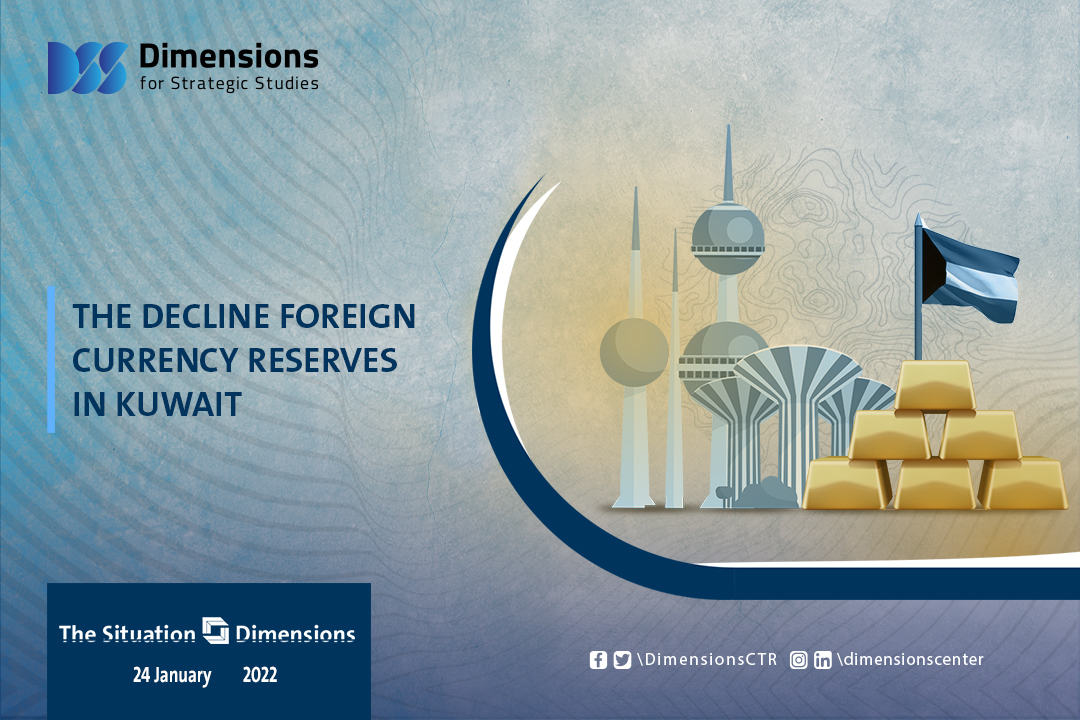
THE DECLINE FOREIGN CURRENCY RESERVES IN KUWAIT
2022-01-242248 view
Final reports of fiscal year 2021 showed that foreign currency reserves in the Kuwaiti Central Bank declined by 13% on an annual basis. They reached just under 12 billion Kuwaiti dinars (about 40 billion dollars). Kuwait had achieved a growth of 13.8 billion dinars (about 45 billion dollars) in the cash reserve by the end of 2020.
Kuwait suffers from a budget deficit as a result of the drop in oil prices that occurred in previous years, and because of the expansion of government spending to address the Corona measures. Kuwait relies on oil resources for approximately 88% of budget revenues.
The Ministry of Finance had called for austerity measures during the first quarter of 2021, and also called for activating the Public Debt Law to borrow sums of up to 66 billion dollars with a time limit of 30 years. The project, which was presented to the Kuwaiti parliament, encountered huge objections, as deputies believed that the solution would not be by borrowing, and others suggested the monetisation of some government-owned assets, as well as borrowing from the "Future Generations Fund". Other proposals were made and increasingly discussed amid political differences.
The bill was eventually rejected. The reasoning given was that the government should own a reform project that should guarantee diversification of resources and reduce waste and corruption, which made the government rely on the cash reserve to solve the crisis and the decline in the country's credit rating.
Although the current cash reserve, which is approximately $40 billion, is considered sufficient to cover the country’s needs, Kuwait faces difficult choices, as the public debt law is likely to pass, which will raise the debt-to-GDP ratio and push interest rates higher than ever before as a result of the impact Kuwait's credit rating and the political ado that occurred. The second option, however, might be to resort to the "Future Generations Fund", which is one of the largest sovereign funds in the world with assets estimated at about $600 billion. However, withdrawing from this fund will make the government reduce the speed of financial reform and economic diversification policies.
The other option is to devalue the Kuwaiti dinar; which reduces the value of the government deficit. Such a measure; however, will raise the value of government imports and contribute to an increase in inflation under the conditions of high prices that the world is currently witnessing.
The continued rise in oil prices might lead to a reduction in the deficit and an exit from the crisis, but this matter will be a temporary solution that will quickly bring the country back to square one by relying on oil as a major resource in the budget.
A mixture that combines all previous options, including a reform program in different proportions divided into urgent, short-term, and medium or long-term, could be the best solution to get out of the current crisis; especially in light of the expectations of continued high oil prices.





